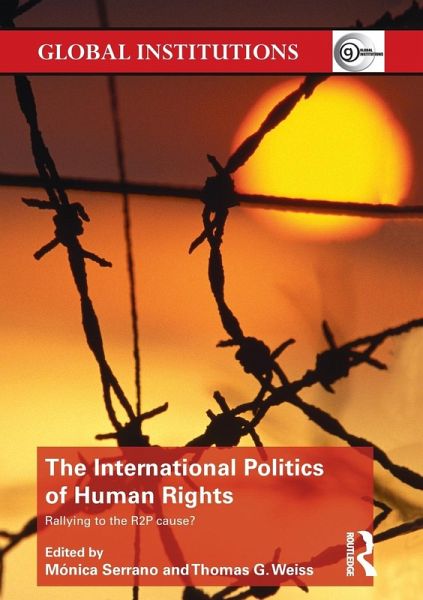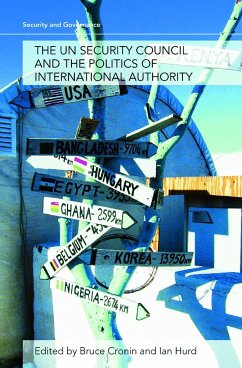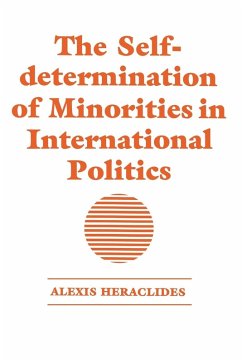
The International Politics of Human Rights
Rallying to the R2P Cause?
Herausgeber: Serrano, Monica; Weiss, Thomas G.
Versandkostenfrei!
Versandfertig in 1-2 Wochen
55,99 €
inkl. MwSt.
Weitere Ausgaben:

PAYBACK Punkte
28 °P sammeln!
The responsibility to protect (R2P) is at a crossroads, the latest in a journey that is only ten years old. This book present debates on the prevention of mass atrocities to R2P's normative prospects. The book addresses key questions as a way to inform and drive on-going conversations about R2P. Moving beyond well-rehearsed debates about the tensions and meanings around sovereignty in R2P practice, the book focuses on advancing the credibility of the preventive dimensions of R2P, whilst simultaneously examining the extent of R2P's current value-added in state decision making-especially for the...
The responsibility to protect (R2P) is at a crossroads, the latest in a journey that is only ten years old. This book present debates on the prevention of mass atrocities to R2P's normative prospects. The book addresses key questions as a way to inform and drive on-going conversations about R2P. Moving beyond well-rehearsed debates about the tensions and meanings around sovereignty in R2P practice, the book focuses on advancing the credibility of the preventive dimensions of R2P, whilst simultaneously examining the extent of R2P's current value-added in state decision making-especially for the 2011 actions in Libya and Côte d'Ivoire. Questions addressed include: Did the R2P framework of the 2005 World Summit Declaration intend to mould sovereignty, and if so how? Can R2P break or revert cycles of violence? How can one determine the appropriate duration and timing of the preventive and protective phases of R2P? Who/what should be the targets of preventive action, and how does this have an impact on R2P diplomacy? Under which conditions are particular policy tools likely to be effective? Which state and regional actors are best suited to using these tools? What are the barriers to successful preventive action-how can they be overcome? What capacities need to be built (at the national, regional, and international levels) in order to operationalize R2P's preventive agenda? Examining a wide range of countries, this work will be essential reading for students and scholars of international human rights, international organizations, peacekeeping and conflict resolution.














